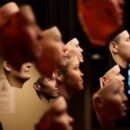Institutions, not politicians, will deliver us from poverty
Here’s something to think about: it is not in Kenya alone that politicians are an utterly untrustworthy breed! As we continue to look upon our political leaders with suspicion, irritation and frustration, we can console ourselves with the news that we are not alone. Politicians are held in very low public esteem all over the world – even in the most advanced of countries.
A survey of Germans highlighted in The Economist recently confirmed this. When asked the question: “What institution do you trust most?” German voters put political parties right at the bottom of the pile, with a very low trust rating. Now, we could get carried away here and tell ourselves that we are not so badly off: if a country as economically advanced as Germany has untrustworthy politicians, then we’re in good company.
But wait. The same survey showed something equally interesting: that 80 per cent of Germans place their highest trust in their police force. Other institutions like the medical profession, the judiciary, the armed forces and the media also received high trust ratings.
Now we’re learning something. That a country’s politicians may be irredeemably dissolute, but it need not be a matter for great concern – provided other institutions are held in great public trust. If people can trust the police and the courts to uphold the system of justice, if civil servants can be trusted to blow the whistle, and if the media can be trusted to expose wrongdoing at every turn – then trust in the future can be upheld.
The tragedy of Kenya is not that we allowed our politicians to run amok. Politicians generally do. It is that we allowed our police, our courts and some of our media to join them in the gutter. That is what left us truly defenceless against the onslaught of corruption and ineptitude. That is why rebuilding our institutions must receive the highest priority in our journey to economic recovery.
We changed our government last year, and 16 months later, we can see the truth in this. Our new political leaders have yet to demonstrate any remarkable change in their behaviour patterns. They are still imbibing the heady intoxicant called power and trampling all over us in their drunken rapture. They are still regarding public funds as a large trough in which to immerse their ever-growing snouts. They are still more concerned with infighting, squabbling and scheming than they are with improving the lot of the common man.
If we left these people alone, we would be back exactly where we started. The music of plunder would keep playing in our ears; the dance of poverty would keep weaving across the land. Only institutions can save us.
Institutions matter. Economic studies confirm that societies with the highest-quality institutions tend to escape poverty and violence. They tend to escape wars and genocide. Strengthening and nurturing the institutions of law, democracy, media and accountability can end our seemingly endless cycle of poor growth. It is a fundamental first step.
Which is why recent events are so worrying. Far from understanding the need to rebuild our institutions, some leaders who really ought to know better appear hell-bent on killing them off once and for all.
When an assistant minister reportedly arms a large mob with new machetes and tries to lead it into a private farm to reclaim land, what is that leader doing to the institutions of law and order? This in a nation that has witnessed horrific genocide in one nearby country, and massive famine and impoverishment in another – sparked off by precisely this sort of irresponsible action by misguided leaders.
If you noticed, we were saved in this instance by precisely those institutions whose protection I am crying out for. The police force refused, for once, to bow down to illegal ‘higher’ orders and allow the mob into the farm. The media highlighted the issue and gave it full prominence. The public joined in and roundly condemned the action. Calls are growing for the leader to be charged in a court of law. A would-be demagogue has retreated, his eyes smarting from teargas and his ears ringing from the clamour of public opinion. Had we not had a police force willing to stand up to an abuse of the law, and a media willing to give voice to the people, we would have set the most dangerous of precedents: the rule of the mob.
Other ministers are playing the hazardous game of flouting the law with impunity. Court orders are being ignored casually and recklessly. These ministers seem ready to tell us, with a straight face, that they have very good reasons for ignoring court rulings. “Events have moved on”, we might be told in one case. Or “the court got it wrong”, in another.
This is extremely dangerous nonsense. A court order is a court order, period. It does not matter if you are a ragged peasant or the president of the land. If you wish to contest a court order, you move to court to do so. Your personal opinion is irrelevant. If your legal arguments are superior to those of the judge, you must demonstrate this using due process. If you fail to accept this and proceed to defy the law, you must face immediate arrest.
As a bystander in these events, I have no information that tells me who is right or wrong. I rely on the legal system to analyse the matter and pass judgment. If the private land under attack was acquired illegally, let this be proved in a court of law – not by armed conflict. If the farm raiders have the right to take back the land in question, let the law back their claim, and we will all rejoice in their victory. If sections of the media have transgressed the limits of acceptability, let a properly constituted institution tell us so, and we will support the introduction of controls.
We cannot, and should not, support enactments based on individual whim. That is what an institution is for: to provide a faceless and objective means of ensuring order and accountability, restraint and equity.
When politicians attempt to degrade this country’s institutions even further for the sake of their egos, personal political battles or individual gain, we must offer collective resistance. We must use those very institutions to fight back. If the new Commissioner of Police truly is committed to transforming the police force into an institution to protect the common man, we must give him our ringing endorsement. If the Department of Ethics and Governance truly is working to build institutionalised checks and balances into government, we must back it to the hilt.
Politicians will not save us. The chances of a Nelson Mandela emerging to lead us to growth and development are remote. People of that type simply do not seem interested in politics in this country. Let us look beyond the charisma of individuals and invest in dull, faceless, solid and independent institutions.

Buy Sunny Bindra's new book
The X in CX
here »
Popular Posts
- You are who you hang out withSeptember 28, 2025
- Born knowing the waySeptember 21, 2025
- The art of the CX rescueSeptember 14, 2025
- The cost of pretenceSeptember 7, 2025
- The balance sheet that mattersOctober 5, 2025











